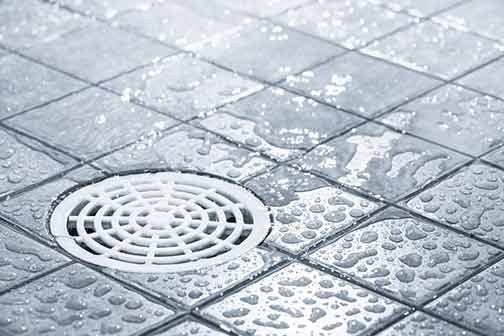
Discovering water coming up from your shower drain can be a distressing and frustrating experience. Don’t panic! This article will guide you through the possible causes and solutions for this issue. Understanding the underlying problems and taking appropriate action can help you prevent further damage and restore your shower to its normal condition.
Why is Water Coming Up from My Shower Drain?
Water backing up through the shower drain can occur due to various reasons. Let’s explore some of the common causes:
Clogged Drains
One possibility is that your shower drain is clogged. Over time, debris such as hair, soap scum, and mineral deposits can accumulate in the drain pipes, obstructing the water flow. This accumulation restricts the passage of water, leading to backflows through the shower drain. If you notice slow draining water or gurgling sounds, it’s likely a clog is the culprit.
Plumbing System Issues
Another possibility is a problem within your plumbing system. Issues such as a blocked vent stack, a mainline clog, or a sewer line in need of repair can cause water to back up through the shower drain. These problems may require professional assistance to diagnose and resolve.
How to Handle Water Coming Up from your Shower Drain
Step 1: Stop Using the Shower
As soon as you notice water coming up from the shower drain, it’s important to stop using the shower immediately. Continuing to use it can worsen the situation and potentially cause more damage.
Step 2: Try Basic Drain Cleaning Methods
If you suspect a clogged drain, you can try some basic drain cleaning methods before seeking professional help. Here’s what you can do:
– Use a Plunger: Plunge the drain vigorously to dislodge the clog. Ensure you have enough water in the bathtub to create a good seal around the plunger.
– Boiling Water: Slowly pour boiling water down the drain to try and dissolve any build-up. Repeat this a few times if necessary, but use caution to avoid scalding yourself.
– Baking Soda and Vinegar: Mix equal parts baking soda and vinegar in a cup and pour it down the drain. Let it sit for around 30 minutes before flushing it with hot water. This method can help break down minor clogs.
– Hand or Drain Snake: A hand or drain snake can be used to physically remove debris from the drain. Insert the snake into the drain and rotate it to hook onto any obstructions, then pull them out.
Step 3: Call a Professional Plumber
If the above methods do not resolve the issue or if you suspect a more serious plumbing problem, it’s time to call a professional plumber. They have the expertise and specialized tools to accurately diagnose and fix the problem. Attempting complex repairs without the necessary knowledge may make the situation worse.
Step 4: Preventive Measures
After resolving the issue, it’s important to take preventive measures to avoid future instances of water backing up from your shower drain. Here are some tips:
– Regular Drain Cleaning: Schedule regular drain cleaning to prevent the build-up of debris in your pipes.
– Use Drain Covers: Install drain covers or strainers to catch hair, soap scum, and other potential clog-causing materials.
– Be Mindful of What Goes Down the Drain: Avoid pouring grease, oil, or large amounts of food down the drain, as they can lead to clogs.
– Avoid Flushing Unflushable Items: Make sure you only flush toilet paper and waste that is designated as flushable. Items like wipes, cotton balls, and feminine hygiene products should never be flushed.
Conclusion
Discovering water coming up from your shower drain can be a cause for concern, but with the right knowledge and steps, you can address the issue effectively. By understanding the possible causes and taking appropriate action, such as trying basic drain cleaning methods or calling a plumber near you, you can successfully resolve the problem and prevent its recurrence. Adopting preventive measures will also help in avoiding future drainage issues. Remember, when in doubt or unable to resolve the problem yourself, don’t hesitate to seek professional help to ensure the proper functioning of your plumbing system.

